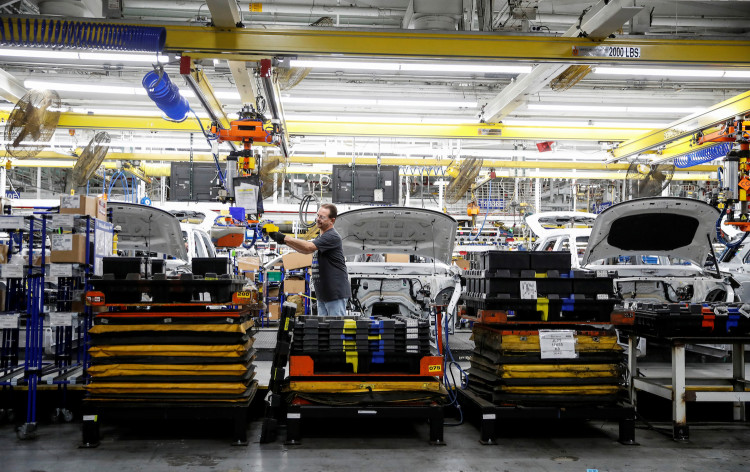In a significant escalation of the ongoing strike, the United Auto Workers (UAW) union has directed its members to walk off the job at Ford's largest manufacturing facility, the Kentucky Truck Plant. This unexpected move came late Wednesday night, catching Ford by surprise and signaling a new phase in the labor dispute.
The Kentucky Truck Plant, a pivotal component of Ford's operations, is responsible for producing some of the company's most crucial vehicles. This includes the heavy-duty versions of the F Series pickup and the full-size SUVs such as the Ford Expedition and Lincoln Navigator. The plant's significance is underscored by its contribution to Ford's revenue, with an annual generation of approximately $25 billion, which is roughly one-sixth of Ford's global revenue.
UAW President Shawn Fain expressed the union's frustration, stating, "We have been crystal clear, and we have waited long enough, but Ford has not gotten the message." He emphasized the need for a fair contract across the Big Three automakers and expressed hope that the strike at such a profitable plant would drive the message home.
The sequence of events that led to this escalation began with a negotiation session called by the UAW on Wednesday evening. The union expected a revised offer from Ford, different from what had been previously presented. However, the meeting was short-lived. After a brief discussion, Fain reportedly told Ford officials, "If that's all you got, you just lost KTP," signaling the decision to strike at the Kentucky Truck Plant.
This move by the UAW is seen as a strategic one, targeting a plant that produces some of Ford's most profitable vehicles. Sam Fiorani, an auto industry expert at AutoForecast Solutions, highlighted the significance of this decision, noting that vehicles from the Kentucky Truck Plant can have profits exceeding $10,000 per unit. Fiorani believes that this move is designed to expedite negotiations and bring Ford to the bargaining table more swiftly.
The ongoing strike, which began on September 15, has involved not only Ford but also other major automakers like General Motors and Stellantis. While the UAW has expanded the strike to other facilities in the past, this is the first instance where the expansion occurred without prior public notice.
Ford responded swiftly to the UAW's decision, labeling it as "grossly irresponsible." The company emphasized the repercussions of the strike at the Kentucky Truck Plant, highlighting the potential impact on their workforce, suppliers, dealers, and commercial customers. Ford also pointed out that the ripple effect of this strike could jeopardize operations at approximately a dozen other Ford facilities and numerous supplier operations, potentially affecting over 100,000 workers.
The UAW's concerns extend beyond immediate wage and benefit negotiations. With the automotive industry transitioning from gasoline-powered vehicles to electric ones, there are growing apprehensions about job losses. The shift could potentially move jobs from union-represented engine and transmission plants to non-union battery factories. This concern has been a focal point in the negotiations, especially regarding Ford's joint venture battery plants.
As the strike continues, all eyes are on the UAW and Ford to see how this situation unfolds. With significant revenue at stake and the livelihoods of thousands of workers hanging in the balance, the resolution of this dispute is eagerly awaited by many.






